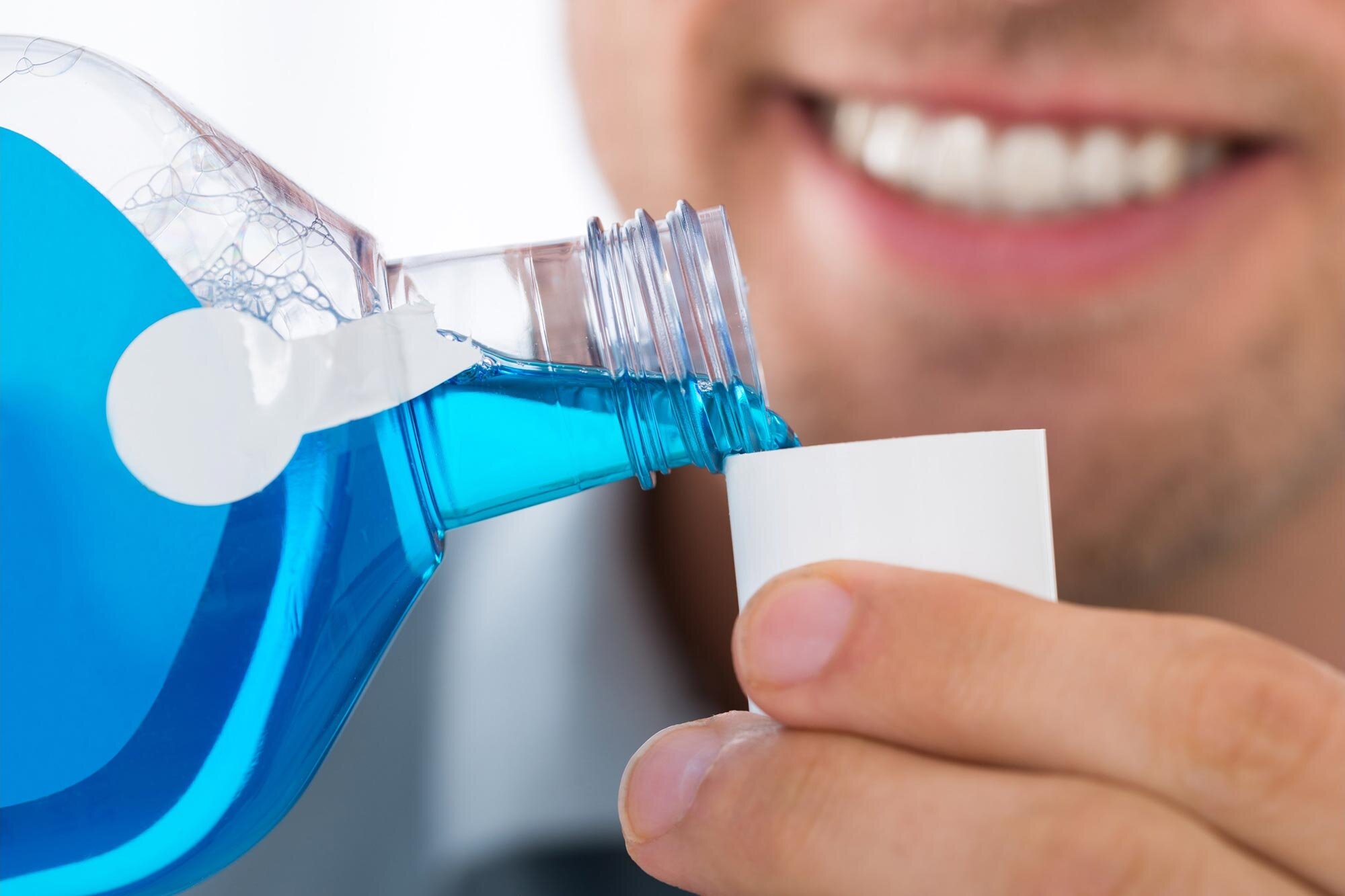Whether to get a fresh breath between the appointments or to have more cavity protection, mouthwash is always handy to boost our oral care routine. Choosing the mouthwash for our needs raises an excellent question: What is the right mouthwash? Do we need a non-alcoholic mouthwash?
Most of the mouthwashes we see in drug stores consist of alcohol and, specifically, ethanol. Alcohol causes a burning sensation, brings unpleasant taste, and dryness to the mouth. In addition, alcohol not only destroys harmful bacteria but good bacteria as well. Meaning, unless we are regularly using mouthwash, a lot of opportunities for bad breath will build up, generally, because of bacteria imbalance occurrence. However, alcohol-free mouthwash targets bad bacteria rather than good, and hence, creates an optimum balance of bacteria to avoid further complications and combat bad breathing problems.
People with xerostomia (dry mouth) or otherwise low saliva flow because of medicinal side effects, diabetes, radiation therapies, and systemic diseases like Sjogren’s syndrome can all recover by using an alcohol-free mouthwash. Additionally, alcohol-free mouthwash is beneficial for people with an alcohol abuse history.
Other than these conditions, BioMed Research International suggests that alcohol-free mouthwash complements gloss, color, hardness, and tooth composite restorations than alcohol-based mouthwashes.
Nonetheless, alcohol-free mouthwashes effectively prevent dental diseases and freshen the breath as well. But mouthwash should not replace brushing or flossing. Mouthwash complements brushing and flossing to improve your overall oral health care.
Valley Creek Dental Care, dentist Mckinney TX, recommends a wide range of options of alcohol-free mouthwashes for improving your overall dental care regime. However, there’s still an unheard question:
Why Do Most Mouthwash Contain Alcohol?
Ethanol constitutes almost every mouthwash. It can kill germs and bacteria in our mouths. It prevents bacterial plaque development that further reduces the chances of getting gingivitis and other gum diseases.
It helps our mouth oils like menthol, eucalyptol, methyl salicylate, and thymol to dissolve in a better way.
The overall rinsing with an alcohol-based mouthwash gives a positive impetus to your oral hygiene and refreshes your breath.
The Downsides Of Alcohol Mouthwash-
Ethanol’s concentration of up to 25 percent can cause burning sensations in the mouth and possibly kill every bacteria. And thus, imbalances the whole system.
Although, some people enjoy the sensation as it creates the impression of getting your mouth extra clean. However, in reality, ethanol provides a drying effect to your mouth.
Additionally, there are some alcohol mouthwashes having chlorine compounds as their substituents. Chlorine is a very acidic salt. It not just kills the germs but can cause tooth staining as well. If someone uses chlorine for long, there are chances of taste buds getting affected.
Alcohol-Free Mouthwash
Since not hundreds but thousands of mouthwash options are available in the market. Now it is upon you to decide whether to use the old alcohol version or incorporate an alcohol-free version of mouthwash in your daily oral health care realm. People who like burning sensations can opt for the alcohol version. However, others can switch to alcohol-free mouth to have substantive medical benefits.
However, avoid ethanol-based mouthwash if-
You are experiencing Xerostomia- Xerostomia or commonly known as dry mouth causes due to low saliva flow. Using ethanol mouthwash will give impetus to xerostomia. Hence, it is advisable to use alcohol-free mouthwash regularly.
You have burning mouth syndrome- Alcohol mouthwash creates a burning sensation that can further exacerbate the symptoms of burning mouth syndrome. It may cause several other oral irritations as well.
Your gums are sensitive- If you are already using special toothpaste for your sensitive gums, ensure you choose a gentle mouthwash or as directed by your dentist.
You are pregnant- No quality of alcohol is safe for any pregnant woman or unborn baby. Hence, make sure to use alcohol-free mouthwash while you are pregnant.
You have diabetes- Diabetes causes dry mouth, gum inflammation, and mouth sensitivity which can cause swishing with mouthwash, a painful experience.
You share your mouthwash with a child- Alcohol-based mouthwash can be dangerous for children as it can cause extreme illness. Hence, the use of alcohol-free mouthwash would be the best choice for your child.
You are recovering alcoholic- Alcohol mouthwash can trigger a relapse for a person you have been recovering from alcohol abuse. It is better to choose an alcohol-free mouthwash for such people.
Types of Alcohol-Free mouthwashes-
Alcohol-free mouthwashes prevent our mouth from getting periodontal diseases, drying, tooth decaying, halitosis, plaque, and tartar growth. They can whiten your teeth as well. Whenever you are choosing alcohol-free mouthwashes, look for the following ingredients:
Fluoride- It is a naturally occurring mineral. It strengthens our enamels and prevents our teeth from cavities and decay.
Cetylpyridinium chloride- It is an antiseptic that kills plaque-causing bacteria and other microorganisms.
Chlorhexidine gluconate- It has antimicrobial properties that reduce plaque and inhibits gingivitis.
Hydrogen peroxide- It is also known as carbamide peroxide. It is a bleaching agent that helps whiten the teeth.
Natural ingredients- Natural ingredients such as aloe vera have antibacterial and antifungal properties that help fight plaque.
There is no denying the fact that alcohol-free mouthwashes help in improving the overall dental care regime. But that should never replace flossing and brushing. Always go for a mouthwash that would complement your regular oral health routine. Ask your dentist to get mindful of various alcohol-free mouth rinses options for improving your oral health.


